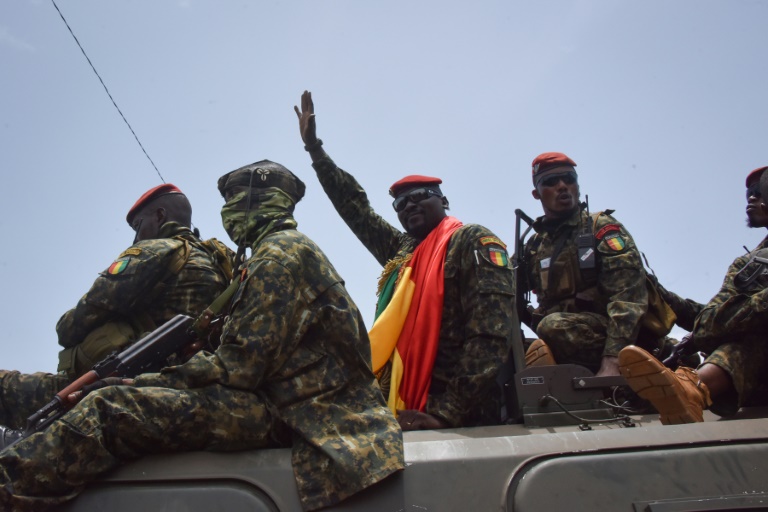Putschists who seized power in Guinea at the weekend have pledged to release “political detainees” held under ex-president Alpha Conde and repeated a vow to hold talks on forming a new government.
Special forces led by Lieutenant Colonel Mamady Doumbouya seized power in the impoverished West African state on Sunday and arrested the president, sparking international condemnation.
The shock move came amid increasing criticism of the 83-year-old for perceived authoritarianism, with dozens of opposition activists arrested after a violently disputed election last year.
In an announcement on Monday evening, the military called on the justice ministry to do what it can to release “political detainees” as soon as possible.
Guinea’s leading opposition coalition FNDC — many of whose members were arrested under Conde — said its activists had been expected to be released on Monday.
But as supporters gathered at the coalition’s urging outside the central prison in the capital Conakry, no prisoner has yet been released.
Doumbouya on Tuesday also repeated a pledge, first made after the putsch, to hold talks on forming a new government in the troubled country.
“The government to be installed will be that of national unity and will ensure this political transition,” he tweeted.
Sunday’s coup triggered broad diplomatic condemnation — including from the United States, European Union, African Union and the West African bloc ECOWAS — with calls for Conde’s release.
The Economic Community of West African States (ECOWAS) is due to hold a virtual extraordinary summit to discuss the situation on Wednesday.
Public discontent in Guinea had been brewing for months over a flatlining Covid-hit economy and the leadership of Conde, who became the first democratically elected president in 2010 and was re-elected in 2015.
But last year, Conde pushed through a new constitution that allowed him to run for a third term in October 2020.
The move sparked mass demonstrations in which dozens of protesters were killed. Conde won the October election but the political opposition maintained the poll was a sham.
Doumbouya, hours after taking power, appeared on television and accused the government of “endemic corruption” and of “trampling on citizens’ rights”.
Conde’s whereabouts are currently unknown, although the military has guaranteed his safety.
A video sent to AFP by the putschists on Sunday showed a rumpled-looking Conde sitting on a sofa, in jeans and a partly unbuttoned shirt, surrounded by troops.
He refused to answer a question about whether he was being mistreated.
– ‘Peaceful democracy’ –
The military coup was met with jubilation in some parts of Conakry, where residents turned out on the streets to applaud passing soldiers.
Cellou Dalein Diallo, the country’s main opposition leader, also expressed his support for the new military government, in the hope that it will lead to “a peaceful democracy” in the nation of 13 million people.
On Monday, Diallo’s opposition coalition ANAD urged the ruling military to establish “legitimate institutions capable of implementing reforms” and to uphold the rule of law.
Hours after the coup, Guinea’s putschists dissolved the constitution and the government.
No deaths have been officially reported in the putsch, although Guinean media has reported that five presidential guards were killed.
AFP was unable to independently confirm the account.
– No ‘witch hunt’ –
“We are no longer going to entrust politics to one man, we are going to entrust politics to the people,” Doumbouya told public television on Sunday, with the national flag draped over his fatigues.
Then on Monday, in his first public appearance as military leader, he promised that there would be no “witch hunt” against former government members.
Ministers have nonetheless been banned from leaving the country.
Doumbouya has also sought to reassure the business community, alarmed over the potential for disruptions in commodity supply chains.
Mining is the economic backbone of Guinea, one of the world’s poorest countries despite its abundant mineral resources, from bauxite and iron ore to gold and diamonds.
Guinea will continue to uphold “all its undertakings and mining agreements,” Doumbouya said.
The coup leader is in his early forties and was trained at France’s Ecole de Guerre military academy. He was also a member of the French Foreign Legion.
Guinea has spent decades under authoritarian rule since its independence from France in 1958. The latest coup is the third in the country’s history.










